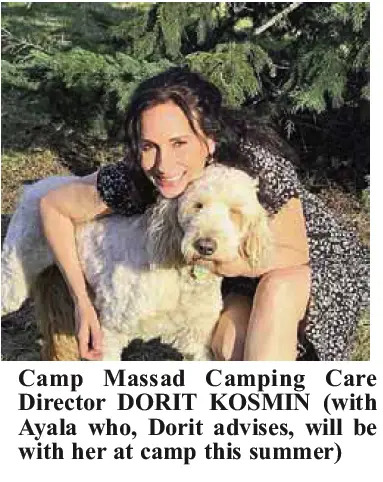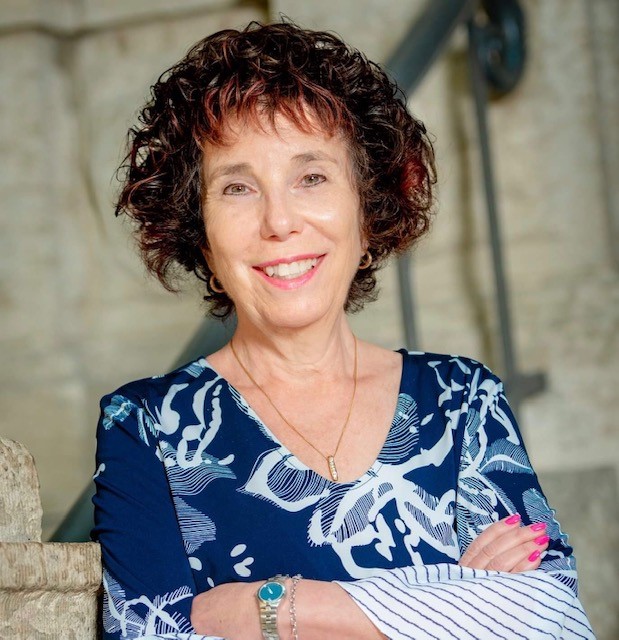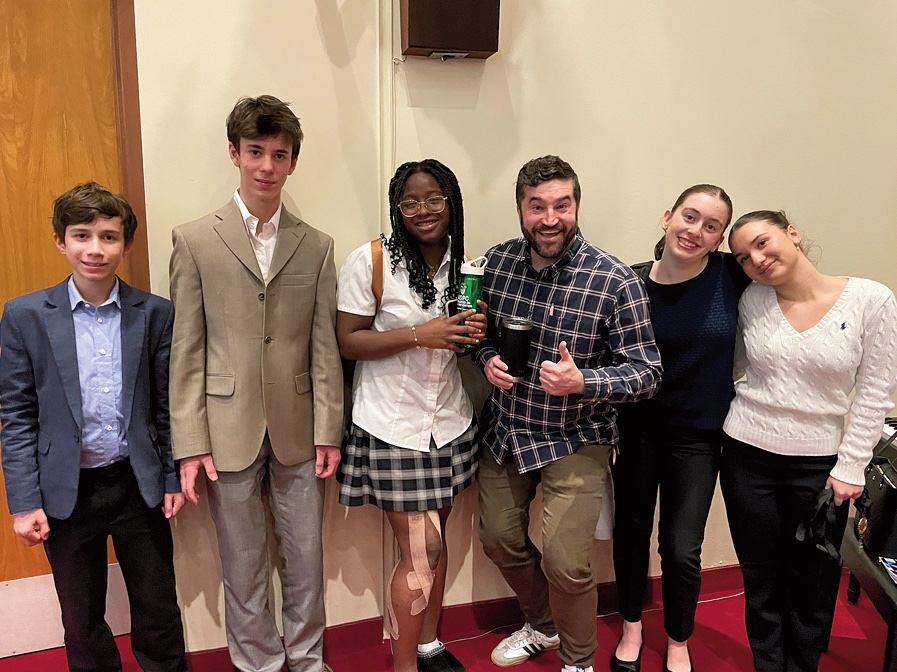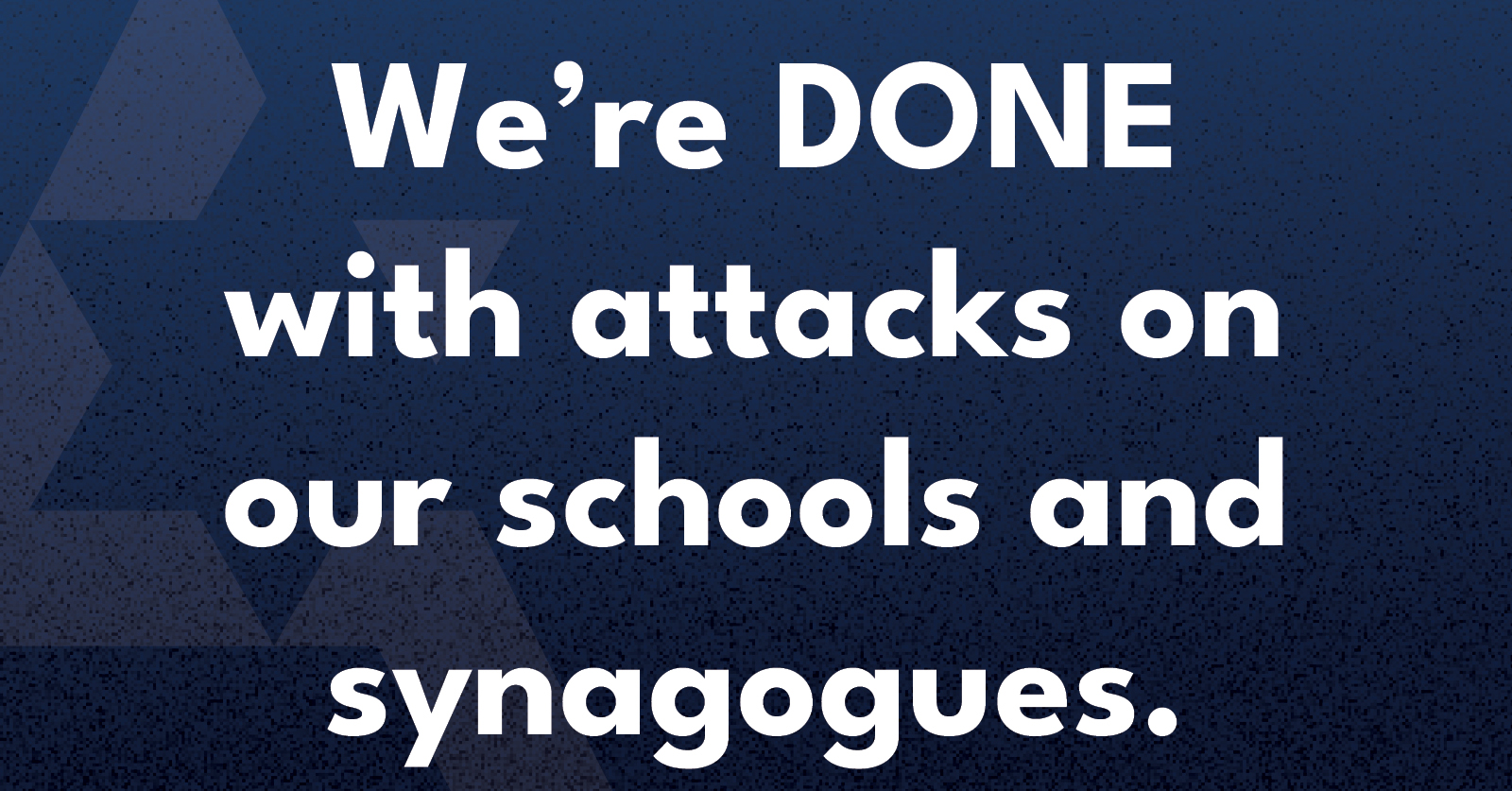Local News
Camp Massad returns this summer with a new staff person: Camping Caring Director

By BERNIE BELLAN After a two-year hiatus from having regular sleepover camp, Camp Massad began to return to normal camping last summer.
However, with the world still in the grip of the Covid pandemic, it was no surprise that registration for Massad in the summer of 2022 was its lowest levels ever: just 90 campers in both the first and second sessions combined.
This summer though, things are looking up, with 130 campers registered so far – and with room for more if anyone is still interested in sending their kids to camp.
However, that number is still a far cry short of the 200 campers who were at Massad the summer of 2019 – the last summer before the Covid pandemic hit.
For many campers returning to camp – or attending for the very first time, can be a much more daunting experience than was the case prior to Covid. The effects of social isolation were profound for many kids and, even though it’s nice to think that “we can put Covid behind us,” it’s not such a simple matter for many in the youngest generation who spent some of the most formative years in their lives dealing not only with social isolation, but mask wearing requirements and distancing while at school and elsewhere.
As a result of those pressures – along with all the other pressures that come with growing up in a world where social media – and its often crippling effects on young minds, also plays an outsized role, particularly among adolescents –this coming summer, Camp Massad will be having a new staff person on site whose title will be “Camping Care Director.”
The person who will be filling that role will be Dorit Kosmin, who also wears the title of “Rabbanit” as the wife of Etz Chayim Congregation Rabbi Kliel Rose.
Recently I had the chance to participate in a Zoom call with Dorit, also with Ian Baruch, who will be filling the role of Camp Massad Director of Engagement and Programming for the first time; and with Danial Sprintz, who is now in his 13th year as Camp Massad Executive Director.
We began the call by discussing just what role it is that Dorit will be assuming.
Dorit said that her title in Hebrew will be “Mashgichah Ruchanit,” which she translated as “Supervisor of the Soul” in English. As well, she noted, she will also be responsible for kashrut supervision at the camp.
The funding for Dorit’s new position came about as a result of a grant from the “Foundation for Jewish Camping: Yedid Nefesh,” Dorit explained.
“Many camps across North America have had camper care for generations,” she observed. “My understanding is that Massad never had that position until now.”
For Dorit, however, serving as a care director at a summer camp is nothing new, she said. She has filled that role for years at different camps, all known as Camp Ramah, run by the United Synagogues of Conservative Judaism in the United States.
With both a BA in Family Studies (with a minor in Judaic Studies) and a Master of Social Work degree, Dorit is well equipped to serve in her new role.
Also, as the mother of five kids who have all attended summer camp at one time or another – and who all dealt with the profoundly negative effect that Covid had on young people, Dorit brings a special perspective to the role of Caring Director and “the heightened awareness that mental health plays in young people’s lives.”
The camp experience can often play a pivotal role in so many ways. It can reinforce a sense of community and of sharing and, for Jewish campers, a notion of Jewish identity that they might not otherwise have, or if they do have it, camp can strengthen that identity.
As Dorit noted, in her own home growing up, where her father was a demographer, he stressed that “the way to reinforce Jewish continuity is through Jewish summer camp.”
Not only can camp be great fun and a place where Jewish identity can be developed, it can also be a “place for healing,” Dorit observed, and “not just for the campers, but for the staff” as well, she added.
Danial Sprintz noted that this summer Camp Massad will be back to “a full staff (of 40) for the first time” in years.
He also observed that for many kids, issues revolving around “body image” and “depression,” which were not unusual for kids to have even before the Covid pandemic, were made all the worse during the pandemic.
Ian Baruch added that he can relate to another issue that many campers face at Massad. As a member himself of a family that immigrated to Winnipeg from a non-English speaking country (Argentina), although Ian grew up here and became fluent in English, many of the campers have just come to Canada in recent years. While some of the campers grew up in homes speaking Hebrew, many others have either no knowledge of Hebrew or very little.
“When I came to Canada I spoke only Spanish and Hebrew,” Ian recalled. “I learned English from other campers.”
As a matter of fact, he added, many of the camp counselors are Spanish-speaking, which should be comforting for campers with similar backgrounds.
This year some of the campers will have come here recently from Ukraine, while at least one camper is one from Brazil.
Regardless what language is spoken, however, Danial Sprintz said that what Massad wants to teach campers are “inclusivity, loyalty, and creativity.”
No kids are ever turned away from Massad, he added, whether for reasons of financial hardship or perhaps because of physical or intellectual disability. Danial noted that for many parents finding the money to send their kids to camp can be a real challenge and they might not even want to consider doing that because there are so many other financial obligations that they would prioritize ahead of camp. He would like to assure those parents that Massad will find a way of making it possible for them to send their kids to camp if that is what they want. All they have to do is contact him and he’ll invite them to come down to the office where they can discuss their particular situation.
As well, Dorit noted that children on the autism spectrum will also be made to feel welcome at Massad. In her role as Caring Director, she said, she will be responsible for having a “sensory space for kids who need a quiet space.”
If you’re at all interested in finding out more about Camp Massad, whether it’s for your kids or, bearing in mind that the readership of this paper skews older – for your grandkids, there is still time to contact Danial at the Massad office here. The number is 204-477-7487. Or visit online at campmassad.ca
Local News
Cheryl Hirsch Katz, Jewish Child and Family Service’s longest serving staffer, set to retire at end of the month

By MYRON LOVE “I loved working at Jewish Child and Family Service,” says Cheryl Hirsh Katz, who is due to retire at the end of June. “I have always appreciated the warm and welcoming atmosphere here. I feel that the people working here are my extended family. I am going to miss my colleagues”.
“I have derived great satisfaction over the years to have been able to help many people in our community of all ages through my work at JCFS,” she continues.
After 44 years at the agency, Katz, the longest-serving member of the staff, was given an appreciative send-off at the JCFS’s recent (June 23) Annual General Meeting at the Shaarey Zedek Synagogue.
The daughter of Art and Bess Hirsh, Cheryl grew up in Garden City. She attended Peretz School, then Jefferson Junior High and Garden City Collegiate. She joined the staff of JCFS in 1981, shortly after receiving her Bachelor of Social Work degree.
She earned an MSW in 1990.
“I chose to become a social worker,” she recalls, “because I always wanted to be able to help people.”
Katz was originally hired by JCFS to work with newcomers. After a couple of years, she was given responsibility for looking after the needs of older adults.
“I really enjoyed working in older adult services,” she says. “That is where I spent the bulk of my time at JCFS.”
After ten years as a case worker, she was promoted to a supervisory role. Later, she was also given responsibility for mental health and addictions programming and settlement services, while keeping the older adult files under her purview.
“As a supervisor, I wasn’t directly involved with individual clients,” she points out. “I was more involved with programming. Among the programs for seniors we organized were – for example – sessions on elder abuse, digital storytelling and memory loss.”
She notes that one of the trends she has seen over the last 44 years is that people are living longer and living in their homes longer. A lot more of our clients are living well into their 90s,” she observes. “We have had to continually expand our staff and the services we provide in order to accommodate the growing demands of an aging population.”
She also spoke of the mental health needs of seniors and aging Holocaust survivors.
She says that she has mixed feelings about leaving JCFS. “After so many years working full time, I am going to have to create a new routine,” she comments.
She notes that, now that she is retired, she will have more time to spend with her parents – who are in their 90s.
And then, there are the two dogs to look after. “I will have time now to try new activities,” she says. “ I might learn to play mah-jong.”
She speaks about maybe doing some traveling – although her husband, Murray, is still working full time.
(She and Murray have one daughter, Farah.)
“Retirement may also include some volunteering,” she adds.
It is quite likely, she will be continuing her association with JCFS but in a volunteer capacity.
Local News
Gray Academy students shine in provincial, national debating competitions

By MYRON LOVE It has been another good year for Gray Academy’s high school students who participated in provincial and national debating competitions. The best results were recorded by Grade 9 student Noa Mednikov, who finished fourth overall nationally, fourth in interpretive reading, and fifth in persuasive speaking at the junior National Public Speaking Championship in early May in Vancouver.
Last October, in the Junior Provincial British Parliamentary Championship – which was held at St. John’s-Ravenscourt – Noa and her partner, Raya Braunstein, finished third as a team while Raya placed third in individual debating.
Their fellow Grade 9 student Maxim Moscalenkov tied for first in persuasive speaking in Vancouver, while the Gray Academy team of Gabe Tapper and Aaron Koplovich finished fifth. Aaron also finished fifth in his individual debate.
Earlier, in March, Maxim finished fifth in the Provincial Juniors debating competition, which was held at Balmoral Hall He and his debate partner, Nate Shenkarow, finished seventh among the teams entered. Last November, he and partner, Ethan Tenenbein, finished seventh in the Junior Prepared Tournament – just behind the Gray Academy team of Nate Shenkarow and Jack Kay.
At the senior high level in that competition, the team of Jacob Tenenbein and Jonah Novoseller finished fourth and Jacob was recognized as fifth best in an individual capacity. Jonah and Jacob also paired up to win the Asper Cup, which was held at their home school.
Jacob represented Manitoba at the Junior National Speech Championship in Vancouver in May and, last October, he and Grade 12 Gray Academy students Julie Krozkin and Daniel Bokser represented Canada at an international debating tournament in Bermuda.
Gray Academy’s debating program was introduced by Linda Martin in 2003. She also led the debating teams at Balmoral Hall. In 2011, Martin was succeeded by Gray Academy high school English teacher Andrew Kaplan.
“Andrew has done a wonderful job with the debating program” says Martin, who has a debating trophy at Gray Academy named in her honour, as well as a provincial trophy for best individual junior debater. “Over the years, Gray Academy students have done very well in many local, national and international competitions,” she adds.
About three weeks ago, this writer had the opportunity to sit down with Andrew Kaplan and six of the school’s top debaters while they discussed the benefits of learning how to debate. According to Noah Strauss – who competed in the Junior Provincials at Balmoral Hall in March, public speaking leaves him with a feeling of accomplishment.
“It’s a good skill set to have,” he observes. “It builds confidence.”
“A benefit of being able to debate is that you learn how to convince people that you know what you are talking about,” adds Maxim Moscolenkov.
Raya Braunstein notes that being able to debate is a skill that she expects to be helpful in many university courses which she may choose to take.
As Andrew Kaplan notes, the ability to express yourself has a great impact in whatever career you choose to pursue.
He points out that debating is compulsory at Gray Academy for all Grade 7 and 8 students – and students can continue debating as an option in the higher grades
Of course, competitive debating is not for everyone. For those students who opt to take that path, the journey begins with internal school debate competition – with the top debating teams and individuals qualifying for local tournaments and – potentially – beyond.
Andrew Kaplan reports that a small number of high schools in Winnipeg and southern Manitoba have active debating programs – including St. Johns Ravenscourt, St. Paul’s High School, St. Mary’s Academy, Garden City and Maples Collegiates in the Seven Oaks School Division, St. Maurice (a Catholic School), as well as Morden Collegiate and Dasmesh, a Sikh private school.
Kaplan expresses his appreciation to the Asper Foundation and an endowment spearheaded by the Kives Family for providing funding for the Gray Academy debating program – as well as the Andrew Slough Foundation – which was established by his friends in memory of the outstanding former Ravenscourt student debater and lawyer who passed away suddenly two years ago at the still young age of 38.
I am confident that our Jewish community can look forward to the continued success of Gray Academy’s star debaters and to the continual emergence of future stars as the times goes by.
Local News
Antisemitism has crept into grade school in Canada

Antisemitism in Canada has moved beyond protests and politics; it is now entering classrooms and altering how Jewish children see themselves functioning within them.
A a university student I have observed the experience of my younger brother in grade eight as a Jewish student. Over the past few months, his school has been at the center of several deeply troubling incidents that have made him feel unsafe in our parks, community, and even his school. Swastikas were drawn around the community, in parks and ponds. Additionally, an older man, who claims to be a pro-Palestinian influencer, stood outside his predominantly Jewish school wearing a keffiyeh, filming a video which then circulated between students on TikTok.
This same man later showed up to our local Jewish community center in keffiyeh to allegedly watch his son play basketball where my brother and many of his classmates go for their lessons, basketball games, and Jewish events. These moments made him and his peers feel watched and targeted just for being Jewish. Local political representatives condemned the incidents and raised awareness about antisemitism, but the fear among students didn’t go away. The feeling of being targeted for simply existing has been taught to my brother, something my parents had tried their hardest to escape from.
Most recently, my brother was chosen to represent his school at a regional science fair. When one of the judges arrived wearing a keffiyeh, he froze. For many, including my brother after the incidents he has faced, the keffiyeh represents a political message. But even more so for my younger brother, it is tied to the fear and intimidation he had already experienced. He felt nervous, distracted, and unsure of how to act.
This is not about silencing political expression. It is about a child who came to share his ideas and left feeling uncertain and afraid. It is about the atmosphere forming in Canadian schools, where Jewish students are being made to feel targeted and unwelcome.
His school made an effort to address the incidents, but the impact is lasting. Posts on social media, much can be very vague at times about inclusion cannot fully undo the feeling of being singled out. A kind word from a teacher does not erase the fear that builds when threats are left unspoken but deeply felt.
I am writing this as a sister who watched her younger brother lose a moment that should have been filled with confidence and pride. He deserved to feel safe. So do all Jewish students in this country.
Moving forward, schools must take concrete steps to protect all students. Antisemitism cannot only be addressed when it becomes violent or overt. It must also be recognized when it appears as intimidation, symbolic targeting, or political messaging that creates fear among students. Children should never have to question whether they are safe in their own classrooms or community spaces.
Events that are meant to support and celebrate students must remain focused on them. Individuals who feel the need to bring political symbols or messages into school grounds or children’s events should not be welcomed in those spaces. Schools must make it clear that their environments exist to support learning, safety, and inclusion, not to host agendas that can intimidate or isolate students.
Administrators and educators must develop clear guidelines for identifying and responding to antisemitic behavior in all its forms. This includes strengthening security measures, offering ongoing staff training, and engaging directly with Jewish families to understand their concerns. Inclusion is not a one-time statement. It is a responsibility that must be reflected in everyday decisions and actions. No child should ever feel unsafe or unwelcome because of their identity.
The author is a Campus Media Fellow with HonestReporting Canada and Allied Voices for Israel who lives in Toronto.
